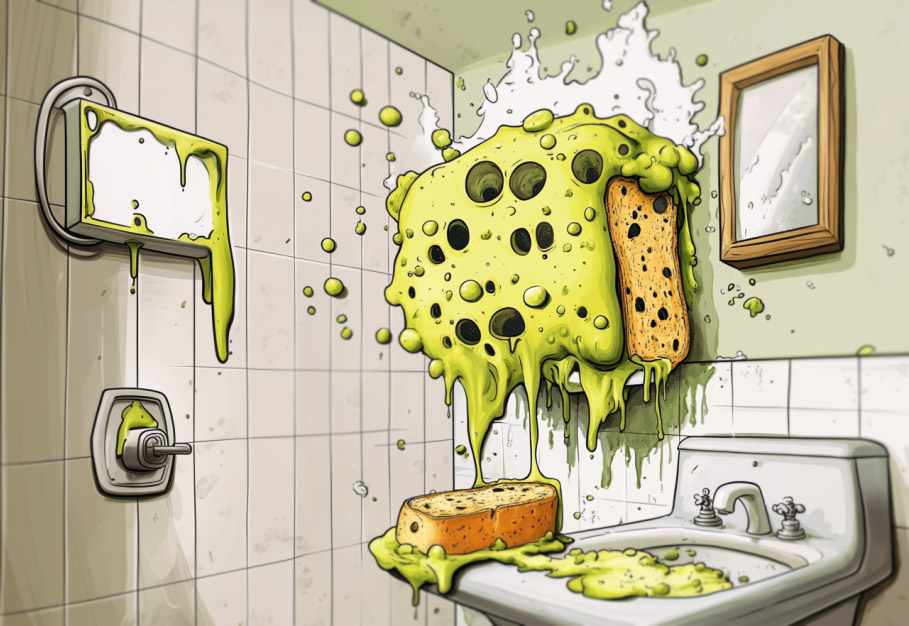Have you ever felt really scared when you saw mould? Maybe you’ve seen it on old bread or in a damp corner of your house. If thinking about or seeing mould makes you feel super scared or anxious, you might have a fear called mycophobia, which is the fear of mould. Don’t worry – you’re not alone, and there are ways to feel better!
What Is Mycophobia?
Mycophobia is when someone feels a very strong fear of mould. Mould is a type of fungus that can grow in damp places, like bathrooms or basements. For most people, mould is just a bit gross. But for someone with mycophobia, mould can make them feel extremely scared, even if it’s not actually dangerous.
How Do People Develop Mycophobia?
People can develop mycophobia for different reasons:
Past Experiences
Maybe you had a bad experience with mould when you were younger, like getting sick after seeing it, and now you associate mould with danger.
Seeing Others React
Sometimes, seeing how other people react to mould – like parents or friends who are scared of it – can make us feel scared too.
Feeling Out of Control
Mould can grow quickly and sometimes in hidden places, which might make some people feel like they can’t control their environment. This feeling of not having control can lead to fear.
Signs You Might Have Mycophobia
If you think you might have a phobia of mould, here are some things to look out for:
Feeling Very Scared
You might feel very scared or anxious whenever you see mould or even think about it.
Avoiding Certain Places
You might avoid places where you think mould could be, like basements or old buildings.
Physical Reactions
Sometimes, just thinking about mould can make your heart beat faster, make you sweat, or even make you feel sick.
How to Feel Better If You Have Mycophobia
It’s important to know that having a fear of mould is okay, and there are ways to manage it. Here are some safe and easy tips to help you:
Learn About Mould
Understanding that most moulds are not harmful can help reduce fear. Mould is everywhere, but not all moulds are dangerous. Knowing the facts can help you feel more in control.
Practice Relaxation
When you start to feel scared, try deep breathing or other relaxation techniques like imagining a calm place. This can help calm your body and mind.
Start Small
Try slowly getting used to the idea of mould in a safe way. Maybe look at pictures first, then gradually get closer to it. This is called exposure therapy, and it’s a way to train your brain to feel less scared over time.
Keep Your Home Dry and Clean
Since mould grows in damp places, keeping your home clean and dry can reduce the chance of seeing it. This can help you feel safer and more in control.
Talk About It
Sharing your fears with a trusted friend or family member can make you feel less alone. Sometimes, just talking about it helps!
When to Ask for Help
If your fear of mould is making it hard to do everyday things, like going into certain rooms or visiting friends, it might be time to talk to a doctor or therapist. This can feel a little scary, but remember, asking for help is a strong and brave thing to do!
Doctors Are Here to Help, Not Judge
If you decide to see a doctor or therapist, know that they are there to help, not judge you. Good doctors understand that everyone has fears and they will listen to you carefully. They might use friendly methods like talking through your fears, showing you pictures of mould in a safe environment, or teaching you how to stay calm when you feel scared. These methods are all about helping you feel comfortable and safe.
You’re Not Alone
Remember, it’s okay to be afraid of mould or anything else. Everyone has something they’re scared of, and there’s always help available. Whether you try some of the tips above or decide to talk to a professional, know that you are not alone, and there are always people who care and want to help you feel better.
If you find that your fear is very strong and hard to manage on your own, don’t hesitate to reach out to a healthcare professional. They can provide support and guide you towards feeling more at ease. And always remember, it’s okay to ask for help!

